
Resilience amidst ruin: a ukrainian nurse’s survival in war-torn Kharkiv
29/03/2024
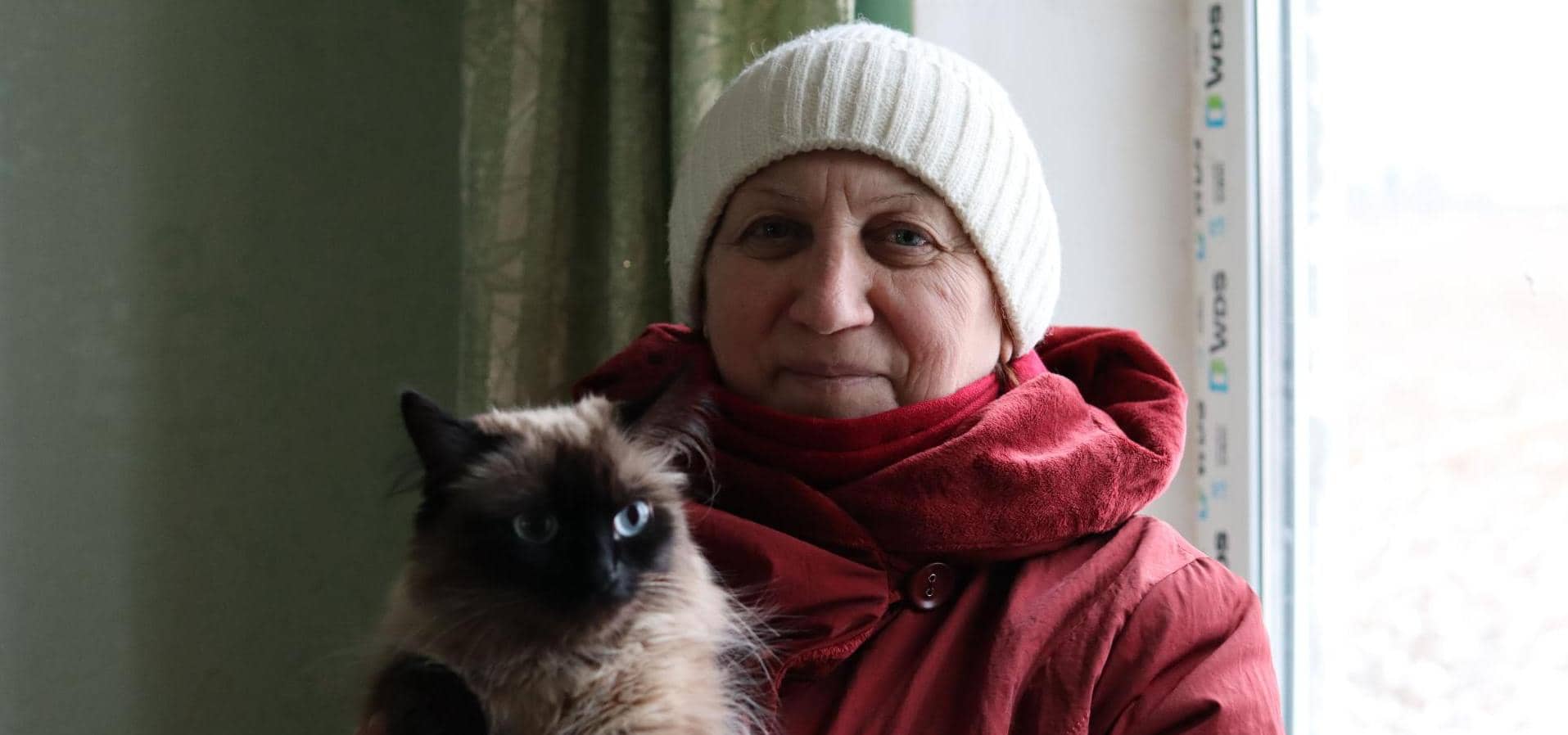
Kharkiv — Surrounded by the half-destroyed buildings of her neighbourhood in Kharkiv, Antonina now finds herself navigating a new war-time reality.
The apartment building, in which Antonina still lives to this day, endured relentless shelling during the first two months of Russia’s full-scale invasion in 2022, leaving its residents in darkness and despair.
“Our neighbourhood had been shelled since the first day of the war, and the shelling had not stopped for two months. My neighbours and I practically lived in the stairwell without electricity or gas,” she shares.
Kharkiv, the city of almost two million is situated 80 km from the Russian border and a little over 100 km from the current frontline. Just like Antonina’s, many of its residential neighbourhoods have become the targets of countless attacks. The once vibrant and peaceful communities now bear witness to the devastating impacts of the war, grappling with destruction and loss. “Our building got hit on 26th of March [2022],” Antonina recounts. “Most of the windows and balconies were destroyed and glass shattered.”
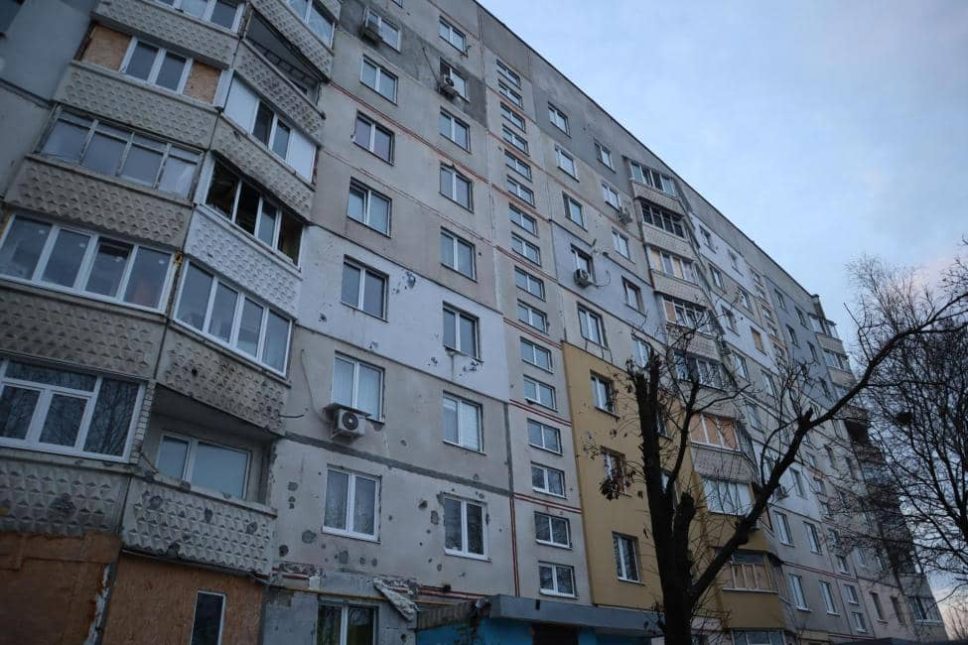
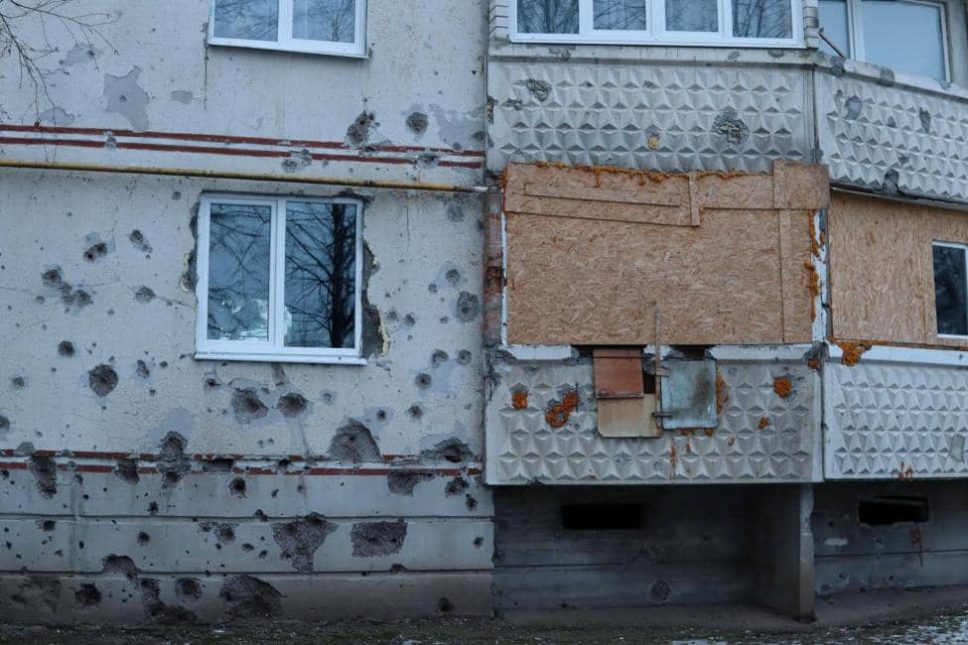
Photo: IOM/Anastasia Rudnieva
Before IOM, with the support of the European Union, installed new windows in Antonina’s apartment building, Kharkiv authorities provided the residents with particle boards that shielded apartments from dampness and cold. However, it posed another issue — the residents were put into complete darkness without any electricity or gas, due to utility lines having been damaged, as well. The living conditions were unbearable in the harsh cold temperatures, Antonina says. Many of the residents left their homes, seeking refuge in other parts of Ukraine or abroad. Antonina was determined to stay.
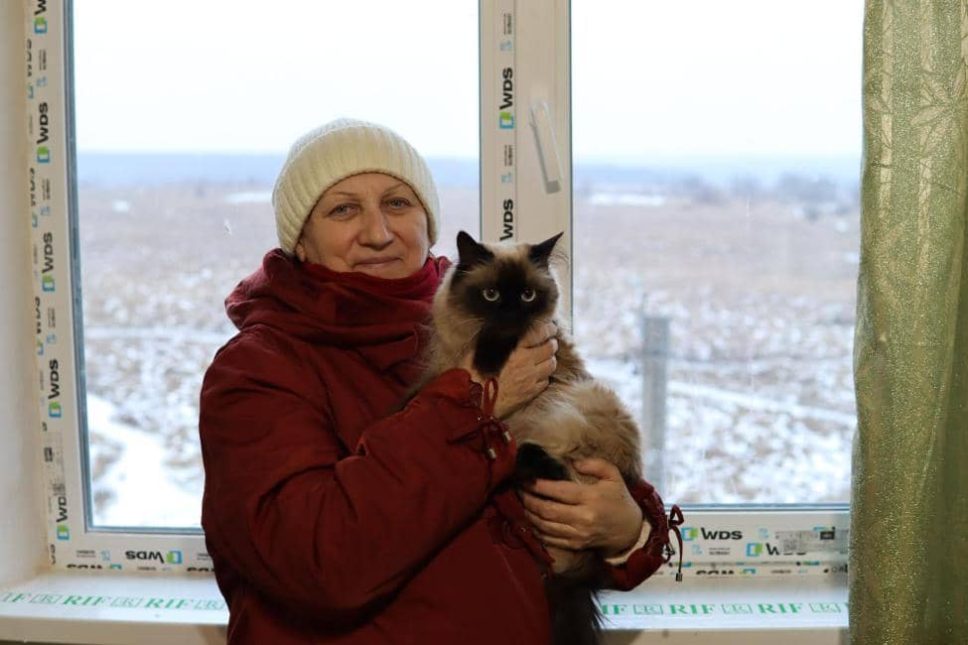
Photo: IOM/Anastasia Rudnieva
“I can’t imagine how I could possibly leave this place,” she says. “When my neighbours left, they asked me to feed and walk their animals. I have many keys, not only to the apartments in my building, but also to the neighbouring ones.” Now, her pockets clinging with dozens of keys, Antonina has essentially become a custodian of her half-abandoned building.
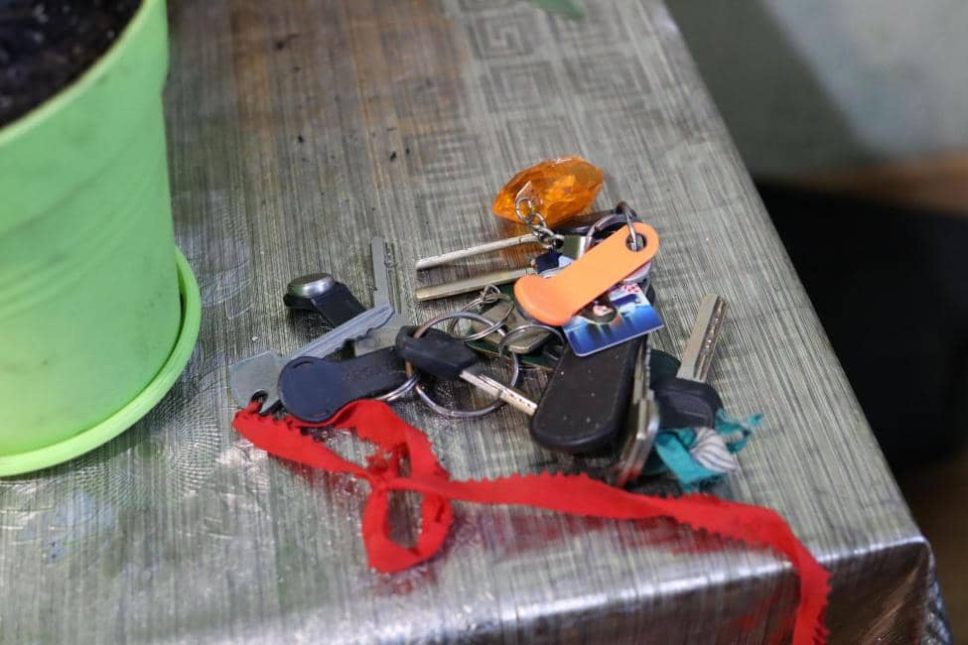
Photo: IOM/Anastasia Rudnieva
In her youth, Antonina was a nurse monitoring the health of astronauts at Baikonur — a space launch facility in Kazakhstan. Now, she uses her nursing background to help those who stayed but are vulnerable, including elderly people with cancer who were left alone. “Not far from this house, there is a lady who is 93 years old. She’s a complete stranger to me, but she has no one else. I’m now looking after her,” Antonina says.
Her nursing background also proved invaluable in handling emergencies. Antonina helped the janitor of her building and provided first aid when he got injured while saving stray cats and dogs during shelling: six of his ribs were broken, requiring immediate medical assistance. “I am a nurse, which means that I took the Hippocratic Oath: I promised to help people,” she says.
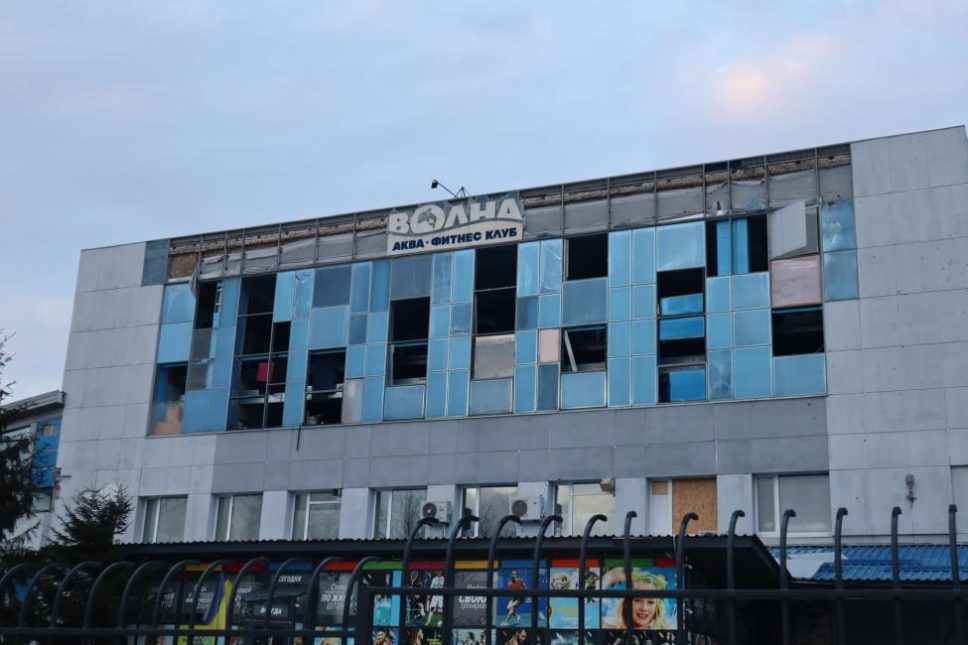
Photo: IOM/Anastasia Rudnieva
“I am strong, but I am not the only one; there are many people like me, especially among Ukrainian women.”
Yet, Antonina’s strength is not without its fears: “My biggest fear is that we will be left without support. It’s easier to get through anything if you know that someone will help you in times of trouble; and that you won’t be left alone with your grief.”
As she looks to the future, Antonina hopes for peace and envisions a celebration, a gathering of those who will return home and those who endured the war in Kharkiv. “After the war, I want to renovate the house and invite everyone for a celebration. We must believe that better times will come. It is impossible to live without this faith,” she says, echoing a sentiment that resonates not only in Kharkiv but in all war-torn regions of Ukraine.
IOM, with the financial support of the European Union, installed new windows, repaired the roof and common spaces in Antonina’s building, ensuring better living conditions and protection from adverse weather conditions. Since the start of the full-scale war, the European Union has remained one of the major donors to the humanitarian response in Ukraine, allowing IOM to scale up its multisectoral assistance to the most vulnerable war-affected and displaced people. About 18 million people are in need of humanitarian aid in Ukraine; in line with this, the EU- funded IOM project prioritizes the response in the most affected areas of eastern and southern Ukraine.
Anna Tsybko | National Communications Officer
Stories
-
Katarina Mathernova: If Ukraine had a human face and a human spirit, it would be 10-year-old Roman Oleksiv
-
A regional mission to drive social entrepreneurship: the story of Ksenia Kosukha
-
EU restores safe water supply for 100,000 Ukrainians affected by war
-
Promoting IT during the war: Lviv IT cluster and how EU4Digital helps
-
Frontline digitalisation: Kharkiv IT Cluster collaborations
-
How EU4Youth is driving opportunity and success among young Ukrainians